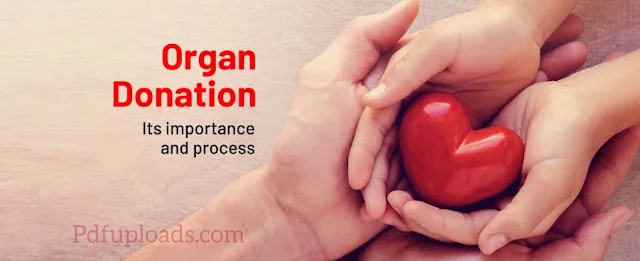How to donate Organs after Death
The functioning of the State Organ and Tissue Transplantation Organisation (SOTTO) may be impacted by the health department’s decision to discontinue the collection of registration fees from patients. SOTTO, the leading organisation in the state responsible for regulating the extraction, storage, and transplantation of human organs, previously relied on funds obtained through registration fees to cover expenses involved in the crucial stages of transplantation.The money collected from the patients was utilised to compensate hospitals for maintaining brain-dead patients in stable condition, organ retrieval, storage, and transportation.
“The hospital where the brain-dead patient is placed on a ventilator charges a fee for maintaining the cadaver. Acquiring funds for government hospitals can be challenging. Having a dedicated fund available to SOTTO would streamline the process and enable quicker transplantation,” said an official. In districts, priority is given to patients in government hospitals when it comes to procuring organs.
The cost of maintaining a cadaver in a hospital can range up to Rs 1 lakh, and there have been instances where the bill amounted to Rs 2.5 lakh. “We can never be certain about the timing of the transplantation. It becomes the responsibility of the receiving hospital to make the necessary arrangements. Sometimes, we even have to provide the University of Wisconsin (UW) solution, which costs Rs 15,000 per litre. We cannot expect patients in government hospitals to bear the expenses,” the official added.
SOTTO currently possesses a corpus exceeding Rs 1 crore, accumulated through registration fees. The government has decided against refunding the money to patients. In response to a demand from the Union Ministry of Health and family welfare, citing violation of rules, the health department has ceased collection of registration fees. Instead, the National Organ and Tissue Transplant Organisation (NOTTO), the national organ donation agency, has agreed to provide grants. Additionally, the state government offers planned funds and grants.
“We initiated our deceased donor programme in 2012, while the National Organ Transplant Programme (NOTP) was introduced in 2017. We have been following the old guidelines until now. The discontinuation of registration fees will not significantly impact the operations of SOTTO, as we can manage with support from the state and central governments,” said Dr Noble Gracious, executive director of SOTTO.
“The hospital where the brain-dead patient is placed on a ventilator charges a fee for maintaining the cadaver. Acquiring funds for government hospitals can be challenging. Having a dedicated fund available to SOTTO would streamline the process and enable quicker transplantation,” said an official. In districts, priority is given to patients in government hospitals when it comes to procuring organs.
The cost of maintaining a cadaver in a hospital can range up to Rs 1 lakh, and there have been instances where the bill amounted to Rs 2.5 lakh. “We can never be certain about the timing of the transplantation. It becomes the responsibility of the receiving hospital to make the necessary arrangements. Sometimes, we even have to provide the University of Wisconsin (UW) solution, which costs Rs 15,000 per litre. We cannot expect patients in government hospitals to bear the expenses,” the official added.
SOTTO currently possesses a corpus exceeding Rs 1 crore, accumulated through registration fees. The government has decided against refunding the money to patients. In response to a demand from the Union Ministry of Health and family welfare, citing violation of rules, the health department has ceased collection of registration fees. Instead, the National Organ and Tissue Transplant Organisation (NOTTO), the national organ donation agency, has agreed to provide grants. Additionally, the state government offers planned funds and grants.
“We initiated our deceased donor programme in 2012, while the National Organ Transplant Programme (NOTP) was introduced in 2017. We have been following the old guidelines until now. The discontinuation of registration fees will not significantly impact the operations of SOTTO, as we can manage with support from the state and central governments,” said Dr Noble Gracious, executive director of SOTTO.
BY THE NUMBERS
Registration fees*
- L2,000 | For kidney
- L5,000 | Liver, heart, pancreas, lungs, hands, multiple organs
- * Now discontinued
- 7,500 | Total registrations thus far
- 2,298 | People awaiting kidney transplant
- 45 | Licensed transplant centres in state
- 40 | Of these are in private sector
- 5 | Are in government sector
Transplantation Of Human Organs (THO) Forms
|
1 |
|
|
2 |
|
|
3 |
|
|
4 |
|
|
5 |
|
|
6 |
|
|
7 |
|
|
8 |
|
|
9 |
|
|
10 |
|
|
11 |
|
|
12 |
|
|
13 |
|
|
14 |
|
|
15 |
|
|
16 |
|
|
17 |
|
|
18 |
|
|
19 |
|
|
20 |
|
|
21 |
Tags
Tutorial
